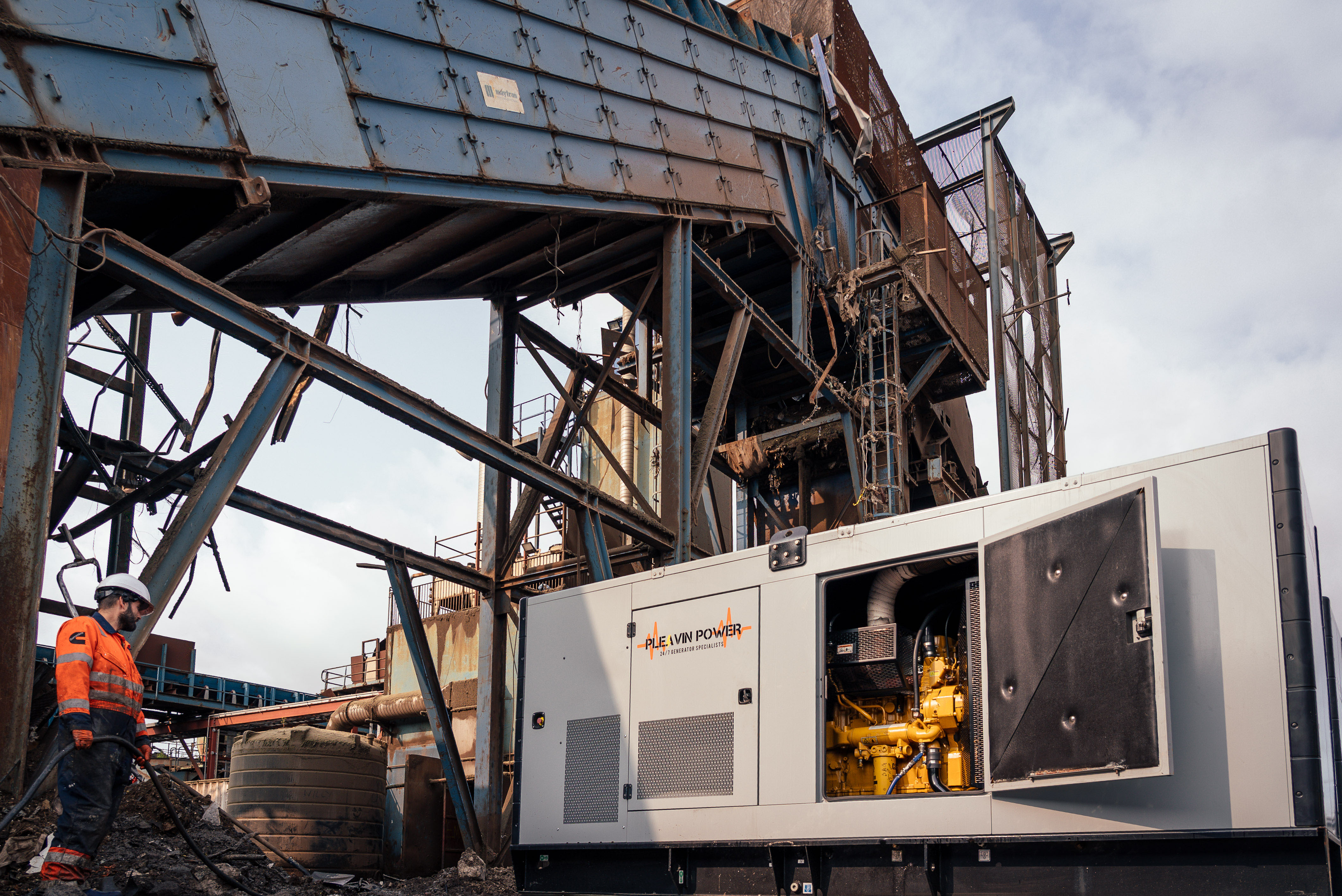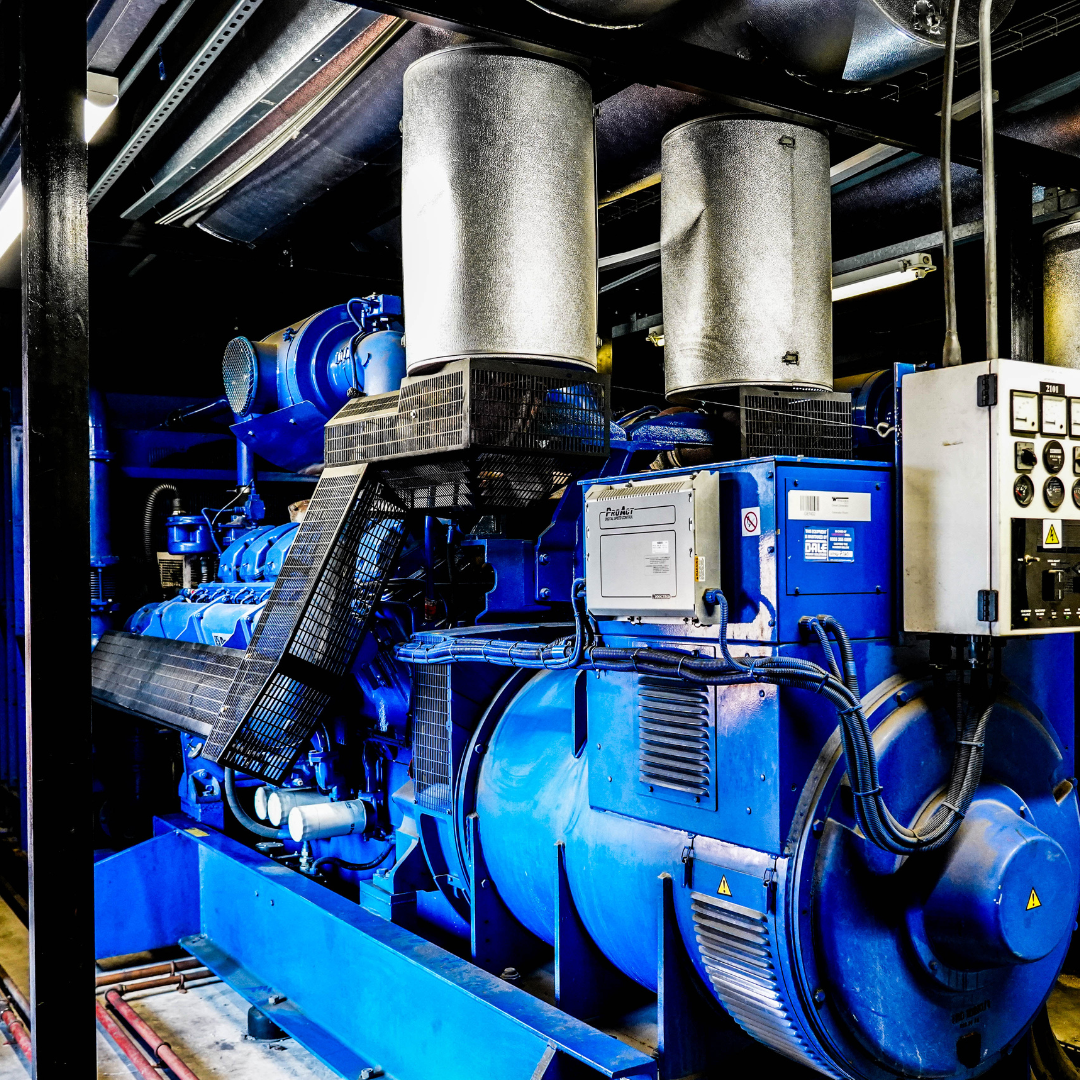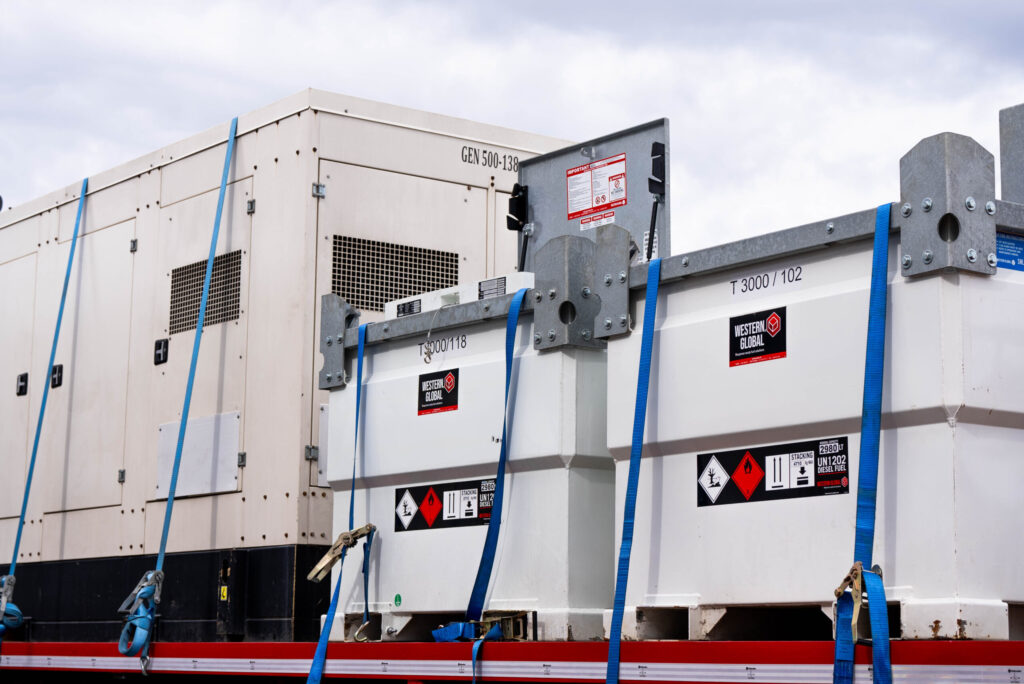A generator is only as good as the fuel you supply it with. Clean fuel is essential for reliable, efficient performance, and for avoiding faults, errors, damage and failures.
However, not all sites and operators which use generators realise that steps need to be taken to prevent fuel contamination. This is despite the fact that it’s one of the most common causes of generator failure.
This is why early detection, preventative maintenance and knowing how to fix contaminated fuel should all be a part of any long-term generator maintenance strategy.
What Is Fuel Contamination And How Does It Affect Generators?
Fuel contamination is the presence of water, sediment buildup or microbe growth in diesel fuel.
If left unused and unchecked, diesel will naturally degrade over time. The contaminants can build up in the fuel and affect its quality, which can lead to performance issues when it’s used in generators. This is partly because it can cause incomplete combustion, which means reduced efficiency.
Contamination can even cause serious damage to the generator, such as clogged filters and corroded fuel systems.
Even a small amount of water – caused by condensation in the fuel storage tank – can encourage a flourishing of microbial growth. This multiples and spreads throughout the entire tank, until the whole batch of fuel is affected.
This is precisely why fuel needs to be checked and tested regularly, to spot contamination before it worsens.

Common Causes Of Fuel Contamination
Unfortunately, there are lots of ways fuel can be contaminated. Here are just a few of the most common:
- Water ingress – Caused by condensation, poor or damaged tank seals, or rainwater intrusion
- Microbial growth (often known as “diesel bug”) – Where bacteria and fungi thrive at the water-fuel interface
- Sediment and particulate matter – Caused by rust, dirt or debris entering during fuel delivery or storage
- Chemical breakdown – Caused by oxidation and sludge formation in stored fuel over long periods
Poor storage conditions can also affect fuel quality, with the main problems being temperature fluctuations, unsealed tanks or infrequent turnover (where fuel isn’t used for long periods of time).
Risks Of Running Generators On Contaminated Fuel
Diesel isn’t cheap to buy, so it can be tempting to use any supplies you have – even if you suspect it’s contaminated – to avoid wasting money.
This could be a serious mistake, one which could lead to even costlier consequences than a wasted spend on fuel.
Running a generator on contaminated fuel comes with significant risks and hazards. This includes clogged filters and injectors, which impact performance and cause unexpected shutdowns. The engine could be damaged due to corrosion or wear on pistons and pumps.
You’ll also notice a drop in fuel efficiency, with higher fuel consumption for the same output, along with increased emissions.
All of this could mean costly repairs, downtime, higher fuel costs and even compliance risks related to environmental regulations.
For example, UK environmental permitting rules state that specified generators must meet emission limit values (ELVs) for pollutants like nitrogen oxides, sulphur dioxide and dust.
Using contaminated diesel fuel (which leads to incomplete combustion, higher soot and elevated NOx and particulate outputs) could cause a generator to exceed its permitted ELVs and therefore breach its environmental permit.
What’s more, if you’re using a generator as an emergency power supply, it’s simply not worth the risk. Contaminated fuel increases the chance of a failure during a critical scenario, which is when you really need to be able to rely on your backup power.

How Can Diesel Fuel Polishing Prevent Failures?
A process known as fuel polishing is an effective treatment for fuel that is stored or stockpiled for long periods of time. It effectively cleans the fuel, using filtering systems to eliminate contaminants and excess water. The process is often performed on-site using specialist equipment and trained technicians.
Many businesses and organisations sign up to regular schedules of fuel polishing, as part of a fuel contamination prevention strategy. It makes a lot of sense, as it’s usually much more cost-effective and sustainable compared to simply replacing the fuel.
Benefits Of Professional Fuel Cleaning Services
Professional fuel cleaning offers a number of advantages, for organisations of all types and sizes. This includes:
- Guaranteed compliance, as fuel polishing services often meet environmental and health and safety ISO standards
- Reduced risk of downtime
- Cost savings – As it can help prevent expensive generator repairs or full fuel replacement
- Sustainability – As it can extend both the life of the generator and the usability of the fuel
How Often Should Fuel Be Checked?
Fuel stored for use in generators should be checked on a regular basis. In most environments, an annual inspection will be adequate, but quarterly checks are recommended for critical environments such as hospitals, data centres and military bases.
You may want to use fuel testing or remote monitoring services to help you track fuel levels, usage and quality.
Long-Term Solutions For Clean Generator Fuel
To ensure the cleanest, highest quality fuel for your generator, here’s a checklist of essential elements that should be in your long-term maintenance plan:
- Regular fuel polishing
- Proper storage practices, such as temperature control and properly sealed tanks
- Routine testing and monitoring – This includes the fuel as well as generators, UPS and other backup power equipment.
- Careful ordering and scheduled turnover – Ensuring you order the right quantity of fuel for your needs, and making sure it’s used before it degrades
- Staff training – Helping your team to recognise the early signs of contamination, including black smoke, unusual odours and frequently blocked filters















